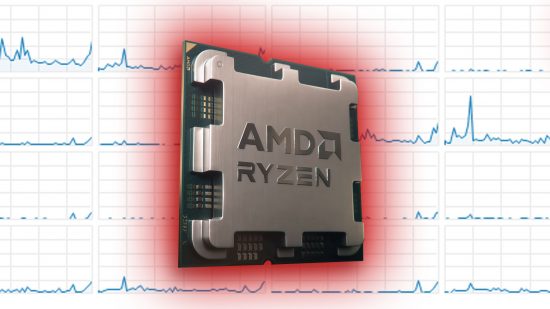AMD has just released updates for the Linux kernel that provide performance monitoring abilities for its upcoming AMD Zen 5 CPUs. These patches allow software to check on features such as the temperature and clock speed of the processors. While no further information about the chips has been provided alongside this update, it could hint at an even sooner than previously expected AMD Zen 5 release date.
We’re currently expecting to see next generation contenders from AMD earn a place on our best gaming CPU list. Company chair and CEO, Lisa Su, is set to make a keynote presentation on June 3rd at the Computex trade show in Taiwan, where the Zen 5 release date is expected to be revealed.
While it’s not surprising that these performance monitoring patches would be released ahead of the product’s announcement, in order to allow software developers plenty of time to implement support, it’s notable just how far ahead of the expected release date that AMD is introducing them to a completely open and public place. It’s one thing for the company to talk to Microsoft privately about release day support for Zen 5 in Windows 11, but it’s another for it to be on a public space.
Nonetheless, if we were betting folk, we’d put money on Computex still being the place where we’ll learn more about the AMD Zen 5 specs, price and release date. Not only is one of the world’s largest PC-oriented tech trade shows a natural place for such a launch but we’re also expecting to see the arrival of competing Intel Arrow Lake CPUs at the same show, so the timing all lines up.
In terms of the specifics of these performance monitoring updates. They come in the form of JavaScript Object Notion (JSON) files that add performance monitor unit (PMU) events to Linux’s performance monitors subsystem. According to Linux tech news site, Phoronix, who first reported the update, the “Zen 5 core/uncore events and metrics/mappings appear to be largely similar to Zen 4 processors”.
This suggests that Zen 5 may not differ too heavily from current AMD Zen 4 CPUs, such as the AMD Ryzen 5 7600X, when it comes to overall architecture, with the new chips instead limiting updates to lower-level features of the chip. In other words, we’re not likely to see a wholesale change like when Intel introduced P-Cores and E-Cores.
Phoronix also reports that last week AMD published the performance monitor counter documentation for Zen 5. Specifically, this documentation referred to the AMD Family 1Ah Model 00h to 0Fh, which we already know refers to the upcoming chips.
The performance monitoring features haven’t yet been added to Linux, with the patches up for review before being released in the next stable version of the OS, which would be v6.9.
So, while we probably still have a few months to wait for AMD Zen 5 – which is expected to use the same AM5 motherboard socket as Zen 4, so should be a drop-in replacement – you can check out which are our current top picks for CPU and motherboard combos in our best gaming CPU and best motherboard guides.
